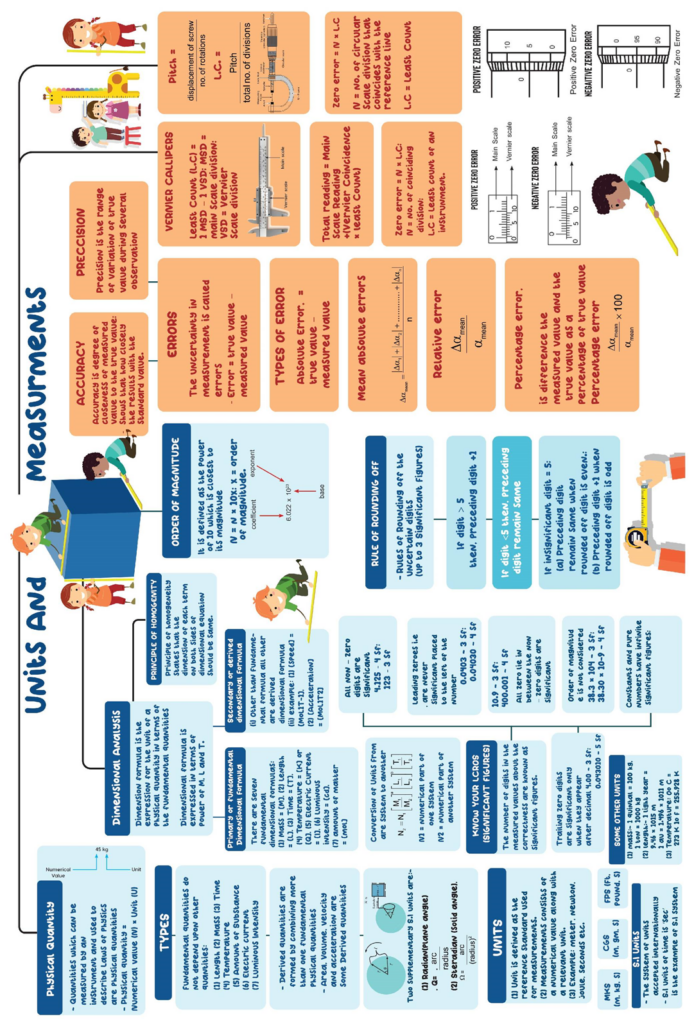
Units and Measurements
Units
Fundamental quantities
The physical quantities which are independent of other quantities are called fundamental quantities.
Example: Mass, length, time etc.
Quantities are those which can be measured using an instrument. Any physical phenomenon or observation that can be measured using an instrument is called quantity.
Derived quantities
The physical quantities which are derived from fundamental quantities are known as derived quantities.
Example: Density, volume, speed, force etc.
The SI system of units
In 1971, General conference of weights and measures introduced a logical and rationalized system of units known as international system of units, abbreviated as SI in all languages. In this system, there are seven fundamental quantities and two supplementary quantities.
Fundamental quantities, their units & Dimensions
| S. No. | Physical quantity | Unit | Symbol | Dimensions |
| 1. | Length | Metre | m | [M] |
| 2. | Mass | Kilogram | Kg | [L] |
| 3. | Time | Second | s | [T] |
| 4. | Temperature | Kelvin | K | [θ] |
| 5. | Electric current | Ampere | A | [A] |
| 6. | Luminous intensity | Candela | Cd | [Cd] |
| 7. | Amount of substance | Mole | mol | [Mol] |
Supplementary quantities and their units (Dimensionless)
| S. No. | Physical quantity | Unit | Symbol |
| 1. | Plane angle | radian | rad |
| 2. | Solid angle | Steradian | Sr |
Rules of writing unit
- In writing the unit of any quantity, small letters must be used for symbol of unit. Eg., m, ms–1 etc.
- Symbols are not followed by full stop.
- If any unit is named after a scientist, its symbol should be initial capital letter. Eg., N(newton), W(watt), K(kelvin) etc.
- The full name of a unit always begins with a small letter, even if it is named after a scientist.
Eg., 5 N or 5 newton. - Symbols do not take plural form.
Some practical units
There are some practical units which are simultaneously used with SI units.
(i) 1 fermi = 10–15 m
(ii) 1 angstrom = 10–10 m
(iii) 1 nanometer (nm) = 10–9 m
(iv) 1 micron (mew m) = 10–6 m
(v) 1 light year = 9.46 ´ 1015 m
(vi) 1 astronomical unit (AU) = 1.496 ´ 1011 m
(vii) 1 parsec = 3.03 ´ 1018 m
(viii) 1 amu = 1.66 ´ 10–27 kg
(ix) 1 quintal = 100 kg
(x) 1 tonne = 1000 kg
(xi) 1 lunar month = 27.3 days
(xii) 1 Shake = 10–8 s
